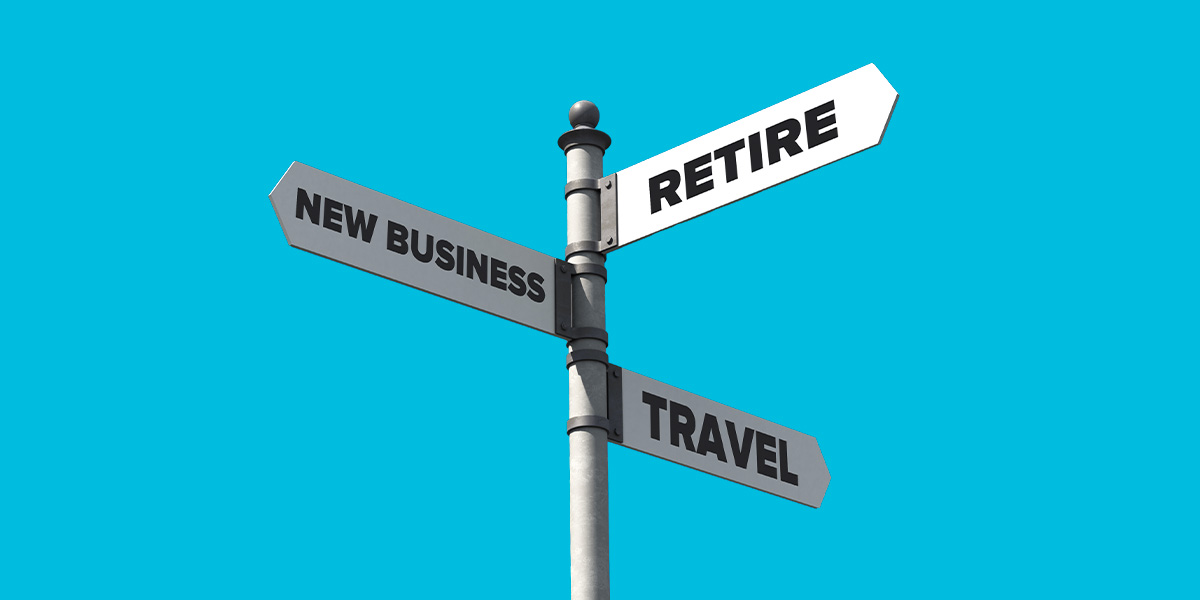-
Business Banking -
Insights
Equipment Finance: A Guide to Understanding How it Works
Equipment represents a significant investment for many companies. That's why, rather than tying up large amounts of cash to purchase needed equipment, small and large businesses often benefit from equipment financing. This route allows them to preserve cash, obtain the necessary equipment and align payments to the useful life of the assets.
Equipment financing is the process of getting a loan or lease to acquire business equipment. Organizations can use equipment financing to purchase almost anything their business needs, aside from real estate. They can use equipment financing to acquire company vehicles, technology, production equipment, office furniture and fixtures, medical equipment, build-out costs and many other items needed to run their companies.
"When businesses purchase new equipment, it often takes years to realize the full benefits of that upfront cost," said Mark Bearden, senior vice president at First American Equipment Finance, a subsidiary of City National Bank. "With equipment financing, business leaders can spread the costs over a period of time and better align the cost with the benefit of the equipment."
Equipment Loan vs Equipment Leasing
Equipment financing often comes in the form of an equipment loan or lease. While they may sound similar, there are some crucial differences between the two forms of financing.
For instance, while some lenders may offer equipment loans up to 100% of the value of the equipment, it's common for them to offer loans only up to a certain amount of an equipment's value.
For example, a lender may provide a loan for 80% of the equipment's cost. That means the borrower must provide a down payment of 20% of the cost of the equipment.
If you choose an equipment loan, you will need to make sure you can cover any required down payment, as well as make the monthly loan payments. When you have completed making your loan payments, you will own the equipment outright.
Equipment leasing differs from equipment lending in that you are not buying the equipment, so you don't have to come up with a cash down payment. Instead, the financing provider purchases the equipment that your business needs, and you make a monthly lease payment to use it. Leasing clients often benefit from lower monthly payments than loan clients, but they do not ever own the equipment themselves.
Advantages of leasing equipment include:
- Paying less than the cash purchase price of equipment.
- Enabling predictable budgeting.
- Avoiding equipment obsolescence.
Leasing may be less expensive than getting a loan to purchase the equipment because the lessor invests what is known as a "residual position" in the equipment being leased. Many types of equipment, such as computers and vehicles, become outdated quickly. So leasing offers the freedom to upgrade to new equipment regularly without making a large cash outlay. If you plan to update equipment regularly, make sure your lease term allows for that without incurring a penalty, and work to structure a lease term that coincides with your planned upgrades.
For businesses that decide to purchase the leased equipment, some leasing contracts offer a purchase option when the lease agreement is completed. If you want to lease equipment but eventually own it outright, make sure your lease agreement offers what is called a "fixed purchase" option.
Contracts for the end of a lease might include options for:
- Buying the equipment.
- Extending the lease.
- Ending the lease and returning the equipment.
It's important to know what options are available for the end of your lease. Your lease agreement will contain these details. It is common for lease contracts to require notice of your election several months prior to the lease-end date. Other lease contracts could include return fees or limit the lessee's decisions about whether they choose to purchase, extend or return the equipment.
What Are the Requirements for Equipment Financing?
Most lenders will have requirements to provide financing for business equipment. First, the lender will evaluate the value of the equipment you plan to finance. If the equipment is new, many lenders will use the sale price as the value for lending purposes.
If your business plans to purchase used equipment, a lender might require an appraisal of that equipment. You may have to provide photos and serial numbers to assist in their valuation of the equipment.
Debt Service Coverage
In addition to equipment valuation, the lender might require something called "debt service coverage." That means reviewing your business financials to make sure you have the appropriate amount of cash flow to successfully take on the monthly payments for the equipment loan.
The lender will also determine how much value the equipment will add to your business revenue potential and compare that value to the monthly debt payments.
For example, say you own a transportation and logistics company and want to finance a new fleet of trucks that will allow you to cover more ground each month and deliver more goods, increasing your monthly revenues by $25,000. A lender might want to make sure that your monthly debt repayment will be significantly less than your monthly revenue. This helps to ensure that your business will have the opportunity to increase its revenues with the new equipment.
Credit History
Finally, lenders will review your business's credit history to determine whether the loan is worth the risk they are taking. If your business does not have significant credit history, the lender might require the owner's personal credit score and credit report in order to verify creditworthiness.
What Are the Terms for Equipment Financing?
Every equipment finance provider will have different terms for equipment financing. Business equipment loans may have terms ranging from several months to several years.
Leasing terms often last for three, seven or 10 years. However, all agreements are different, and the terms vary based on the type of equipment under lease and the credit strength of the borrower or lessee.
Equipment Financing Rates
Typically, equipment financing rates track prevailing market rates, Bearden said, noting that interest rates have recently experienced steep increases. "In this rate environment, our clients greatly value our creative, consultative approach. It allows us to find financing solutions that work for individual clients," he said.
For example, lenders might provide customized repayment solutions, such as a brief interest-only period, or quarterly or semi-annual payments rather than monthly payments. Unique end-of-term options, tax lease products or leases and loans with extended amortizations can also play roles in finding the right solution.
“Because equipment finance specialists can pull together solutions that fit the client's individual financial objectives, equipment financing is widely utilized, regardless of the interest rate environment," Bearden added.
What Equipment can be Financed for my Business?
Equipment financing can be used for almost any type of business equipment, including office furniture, medical equipment, farm machinery, commercial ovens, computer hardware, software, tools and machines. However, if you're looking to purchase a building, land or any other type of real estate for your business, equipment financing cannot be used.
Equipment Financing Benefits
Equipment financing offers a number of benefits for businesses, allowing them to get the equipment they need at a fixed rate and for a fixed period of time. Many business owners choose equipment financing in order to:
Manage Cash Flow
Equipment financing allows businesses to keep their cash on hand and make monthly payments for needed equipment, rather than making a huge cash outlay to get the equipment they need. It also allows businesses the ability to plan for a predictable, fixed monthly expense.
Acquire Equipment Quickly
An equipment loan or equipment lease can often be executed and completed quickly, getting your business the equipment that it needs in a short time frame.
For example, at First American Equipment Finance, "every client is assigned a project manager who works like a concierge," Bearden said. "Our project management team can streamline the acquisition process, as well as develop creative solutions to meet the client's needs."
Easily Manage the Equipment Lifecycle
By carefully planning for equipment financing, business owners can regularly update their equipment when it becomes obsolete, without ever making a large cash purchase.
Benefits From a Tailored Solution
The best equipment financing professionals don't just provide one-size-fits-all solutions. "Our financing specialists discuss with clients their goals for the asset and can customize a specific product that works for them," Bearden said.
Discover More About Equipment Financing
Learn more about equipment financing at City National Bank through our wholly owned subsidiary, First American Equipment Finance, by reaching out today.
This article is for general information and education only. It is provided as a courtesy to the clients and friends of City National Bank (City National). City National does not warrant that it is accurate or complete. Opinions expressed and estimates or projections given are those of the authors or persons quoted as of the date of the article with no obligation to update or notify of inaccuracy or change. This article may not be reproduced, distributed or further published by any person without the written consent of City National. Please cite source when quoting.
City National, its managed affiliates and subsidiaries, as a matter of policy, do not give tax, accounting, regulatory, or legal advice, and any information provided should not be construed as such. Rules in the areas of law, tax, and accounting are subject to change and open to varying interpretations. Any strategies discussed in this document were not intended to be used, and cannot be used for the purpose of avoiding any tax penalties that may be imposed. You should consult with your other advisors on the tax, accounting and legal implications of actions you may take based on any strategies or information presented taking into account your own particular circumstances.
Equipment financing and leasing are offered by First American Equipment Finance, a subsidiary of City National Bank, and are subject to credit approval by, and documentation acceptable to, First American Equipment Finance. For California clients: Loans made or arranged pursuant to a California Finance Lenders Law license.





